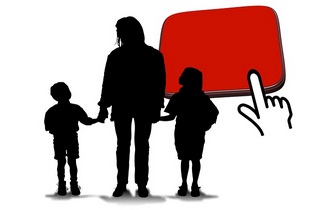Paying for drug rehab or treatment
It’s no secret that drug rehab can be expensive. In fact, the cost of drug rehab is one of the biggest reasons why many people never seek treatment for their addiction. At an average of $715 per day for inpatient drug rehab and $135 per day for outpatient drug rehab…we understand that this can be a burden on anyone wanting help. In many cases, though, drug rehab can save you money in the long run. For example, after successfully completing drug rehab, you won’t have to spend money on drug related expenses, including:
- Drugs and drug paraphernalia
- Medical fees
- Legal fees and fines
- Lost wages from work
Financing drug rehab or treatment
But even people who don’t have health insurance, either private or public, usually have a few options for financing drug rehab or treatment. Consider these ways to finance drug rehab:
1. Life insurance or retirement accounts. Two often overlooked resources include life insurance policies and retirement accounts. Borrowing from these types of accounts does not necessarily require you to pay the money back, but it’s a good idea to do so, since it will affect the amount of money that you or your beneficiaries will receive upon your retirement or death.
2. Savings accounts. If you’re the type of person that saves up for a rainy day, now might be the time to break into your savings or money market account. As with borrowing from retirement or insurance accounts, though, you should do your best to replenish any depleted savings accounts.
3. Personal loans. Finally, a personal loan may be another option you have when financing drug rehab or treatment. If you have good enough credit, you may be able to obtain an unsecured personal loan from your bank or credit union. In some cases, however, you may need to offer collateral for the loan.
Help paying for drug rehab or treatment
If you’re still unable to pay for drug rehab treatment, don’t hesitate to ask for a little help. Loved ones, for example, may be willing to help pay for drug rehab, but only if you are completely dedicated to a successful recovery. Your employer may also offer their employees assistance with drug rehab; this usually includes assistance with setting up treatment and communicating with insurance companies.
Sliding scale drug rehab facilities are another excellent way to find help paying for drug rehab. Sliding scale fees in these types of facilities are usually based on your income, and are only as much as you can reasonably afford to pay for drug rehab.
Affordable care act and drug rehab or treatment
Also consider that new legal changes are making access to drug rehab more affordable. The Affordable Care Act is a new law that began in 2010. Under this new law, health insurance companies are required to treat substance abuse and drug addictions like any other chronic illness. This means that more people will be covered and more people will be able to pay for drug rehab.
Individuals without health insurance may also be covered under government funded medical assistance, also known as Medicaid. This law attempts to expand the eligibility requirements of this program, meaning that more lower income individuals will have access to much needed substance abuse treatment.
Drug rehab payment questions
The bottom line is that the cost of drug rehab shouldn’t necessarily hold you back from the treatment that you need. There are a number of resources that you can use to help pay for or finance drug rehab. If you have any other drug rehab payment questions, we’re here to help as well. Just leave your questions or concerns in the comments section below, and we’ll respond as soon as we can.









Related Posts